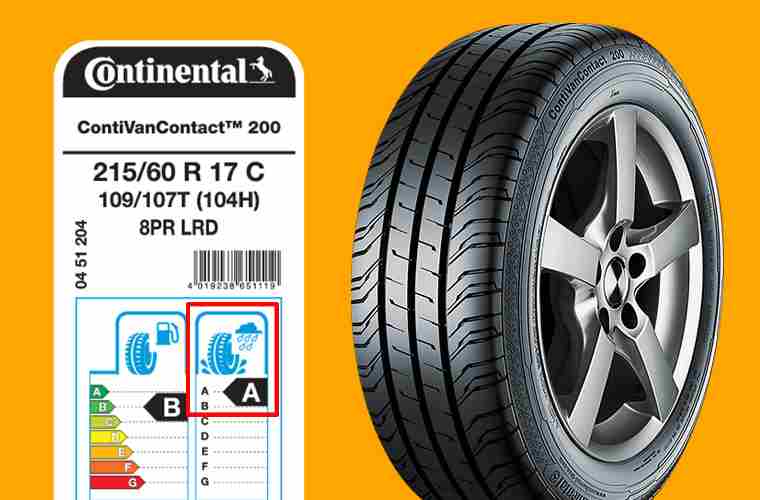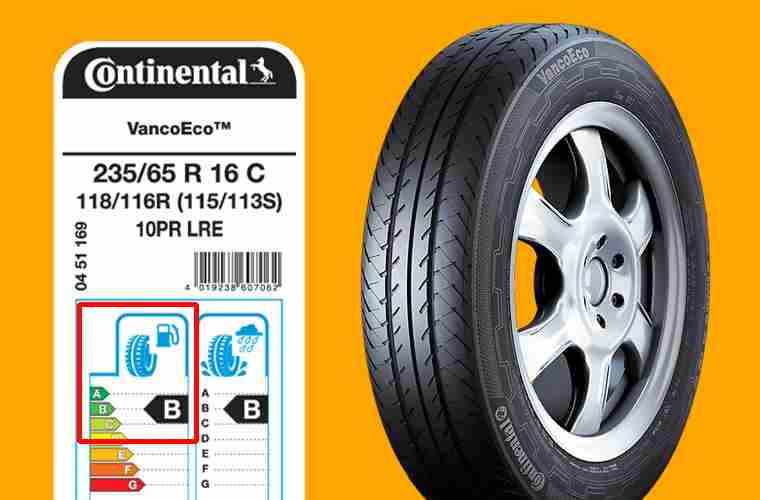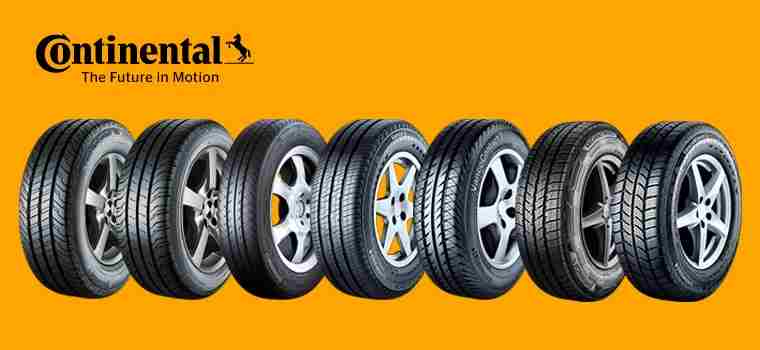The Essential Tyre Guide for Van Owners
Bradley Jando | Friday 8th October 2021 4:20pm

Vans are modern-day workhorses. Businesses of all sizes and in all sectors rely on vans, from delivery companies to mobile dog grooming businesses. If you own a business, you probably have the feeling that it’s your van driving it, since your mobility is a key factor in boosting profit, productivity and customer satisfaction. Keeping your van (or vans if part of a fleet) on the road really matters then.
The key to avoiding vehicle downtime – the time your van is out of action – is vehicle maintenance. You need to avoid breakdowns as much as possible and regular servicing can with this. But is there enough focus on your van's tyres, and the role they play in all of this?
In this article we help you gain a better understanding of just how crucial the choice you make about the tyres that go on your vehicles is. The van tyre you choose will have more influence on your driving than you may think.
Vans need special tyres
Vans, sometimes referred to as Light Commercial Vehicles or LCVs for short, are the ultimate in versatility. Not only are standard panel vans capable of carrying large, heavy and awkward loads, but there are endless variants and conversion options for every conceivable business use - from racking for all your tools to chiller units to keep foodstuff fresh.
Even Kwik Fit uses specially-kitted-out vans to offer mobile tyre fitting throughout the UK. What unites them all is that these vehicles don’t sit around on driveways looking nice. They’re out on the road working, all day every day. And that means high mileage – and with that, a lot of demands on the tyres.
Working with Continental, one of the world’s leading premium tyre manufacturers, we’ve put together five things to consider when buying new van tyres.
1. Know what you want, know what you need
What you use your van for will determine what sort of tyres to buy. Factors like your average payload, how far you travel, whether your work takes you on uneven or unpaved roads (building sites, for example) and what level of comfort you need should all affect your decision making.
Fitting tyres that correspond to how the vehicle is used means your van will perform at its best, you’ll be safer and, crucially for your finances, you’ll spend less over time on tyres.
2. Make sure you have enough structural strength
Van tyres are not the same as car tyres. They differ in a number of ways, since they are designed to carry heavier loads, run at higher inflation pressures, and generally be more robust. There are different types of van tyres available, which offer varying load carrying capabilities.
Van tyres described as Extra Load (XL) or Reinforced (RF) are designed based on standard car tyres, but have been reinforced in order to carry higher loads, and inflated to a higher PSI. On the other hand, those designated as ‘C’ tyres are specifically designed for use on vans and light trucks. These have been developed to carry far higher loads, and can also be used in twin fitments.
Before you make a decision on van tyres, make sure you check the manufacturer recommendations for your vehicle, consider your van’s usage, and always ensure the tyres you select are fit for purpose.
3. Choose the right tyres keep you safe
Whatever vehicle you’re driving, there are times when you need to hit the brakes quickly and stop safely. This isn’t usually an issue if the road’s dry, but if it’s wet – not an uncommon phenomenon in the UK – your tyres can make all the difference.
Premium van tyres – like the ContiVanContact 200 from Continental – are made from high quality advanced compounds and have specially designed tread patterns for superior grip on wet roads. Crucially, that means shorter stopping distances and a lower risk of aquaplaning on wet surfaces. Whatever light commercial vehicle you’re driving, choosing a tyre with the best wet braking rating significantly improves your safety on the road.
Now factor in heavy, often uneven loads, and you can see why fitting good tyres to your van could make all the difference in wet weather conditions. Premium van tyres will help protect you, your employees, and other road users, not to mention your vehicle and its cargo.

4. Save fuel with low rolling resistance tyres
Even if you only run one van, it’s still often out all day clocking up the miles from one destination to the next. The tyres you choose play a considerable role in terms of the fuel economy of your van. And while this may not be such a big factor for an occasional car driver, the savings for commercial van owners add up fast. There’s also CO2 emissions to consider. With low rolling resistance tyres, you’ll emit less and reduce fuel consumption too. To enjoy these benefits, look out for tyres with low rolling resistance, like Continental’s Vanco™ Eco.

5. Short term savings may mean higher costs in the long run
It’s tempting to take a short term view and fit cheaper tyres. After all, you can save 50-60% on the purchase price but there’s a catch and the old adage ‘if it seems too good to be true, it probably is’ rings true here. Budget tyres are not likely to last as long as premium tyres and may even fail prematurely if used in really demanding circumstances. Premium van tyres – like the ContiVanContact 100 – often have specially developed hard-wearing tread, a strong and robust carcass, and highly reinforced sidewalls. The inclusion of a “scuff rib” on the sidewall of the tyre provides even more durability, since it protects the tyre from kerbing damage.
With the high mileage you put your van through each year, fitting cheap, inadequate tyres can have a double negative effect on your costs:
- More frequent tyre changes and administrative hassle.
- More ‘off the road’ downtime, which means lower productivity.

Premium tyres, expert advice
Continental offers a wide range of high quality tyres for all types of light commercial vehicles. With their continued high investment in tyre research and development, you know you’re also buying into a quality product that’s designed to last, save you fuel, keep your van running longer and – above all – keep you and those around you safer.
But when it comes to buying tyres for your van or van fleet, with so many factors like payload, mileage, terrain and vehicle usage to consider, it makes sense to get advice from a trusted tyre expert, like Kwik Fit.
If you’re unsure of which tyres to fit on your van, get in touch with your local Kwik Fit team. We’ll be able to provide expert advice, a professional fitting service and much more.
Any facts, figures and prices shown in our blog articles are correct at time of publication.
Featured Articles
Is it Illegal to Drive With One Headlight?
Saturday 19th July 2025
Wondering if it’s illegal to drive with one headlight? Learn about the safety risks and penalties of illegal blown bulbs and why you should fix them promptly.
Air Con in EVs & Hybrids: Experts Answer Your Questions
Monday 30th June 2025
Does air con drain EV batteries? Can you use the air con while charging an electric car? Find out the answers to these questions & more from Kwik Fit’s experts.
Why Is Your Car Making a Noise? Fixes & Tips
Friday 13th June 2025
When your car starts making unexpected noises, it can certainly be quite disconcerting; it may be nothing to worry about, but here’s what you need to know.









